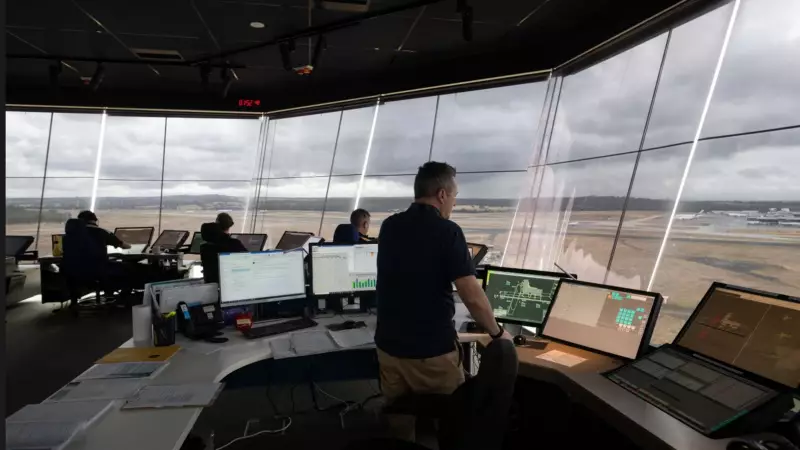
In a startling development that highlights the human cost of the ongoing US government shutdown, the nation's air traffic controllers are increasingly turning to gig economy jobs to survive. With paychecks frozen and bills mounting, these highly trained aviation professionals are driving for Uber, delivering food, and taking restaurant shifts as the political impasse enters its third week.
The Financial Struggle Behind the Scenes
While passengers continue to fly across American skies, the very professionals ensuring their safety are facing unprecedented financial hardship. "We have mortgage payments, car payments, children in school - the bills don't stop just because the government has shut down," explained one controller who requested anonymity.
The situation has become so dire that some controllers are working multiple side jobs after completing their high-stress shifts monitoring air traffic. The irony isn't lost on aviation experts: the people responsible for guiding thousands of flights daily are worrying about their next meal or rent payment.
Safety Concerns Take Flight
Aviation safety experts are sounding the alarm about the potential risks. "When you have air traffic controllers working extra jobs to make ends meet, their focus and alertness during critical operations could be compromised," warned Dr. Michael Daniel, an aviation safety researcher.
The concerns extend beyond just fatigue. The financial stress and distraction of worrying about basic survival needs could impact the split-second decision-making required in this high-pressure profession.
Broader Impact on Aviation Security
The crisis isn't limited to air traffic controllers. Transportation Security Administration (TSA) agents, who screen passengers and baggage at airports nationwide, are also working without pay. Reports indicate increasing numbers of TSA employees are calling in sick, potentially as they seek alternative income sources.
This has led to longer security lines at major airports and concerns about maintaining security standards. The domino effect of the shutdown is beginning to show in operational challenges across the aviation sector.
A Ticking Time Bomb?
As the shutdown becomes the longest in US history, aviation unions and industry leaders are urging immediate resolution. "We're playing with fire here," stated John Cox, a veteran airline captain and safety consultant. "The entire system relies on well-rested, focused professionals at every level."
The situation represents a critical test for the US aviation system, long considered the safest in the world. With no clear end in sight to the political standoff, the resilience of both the workers and the system they maintain faces its greatest challenge yet.





